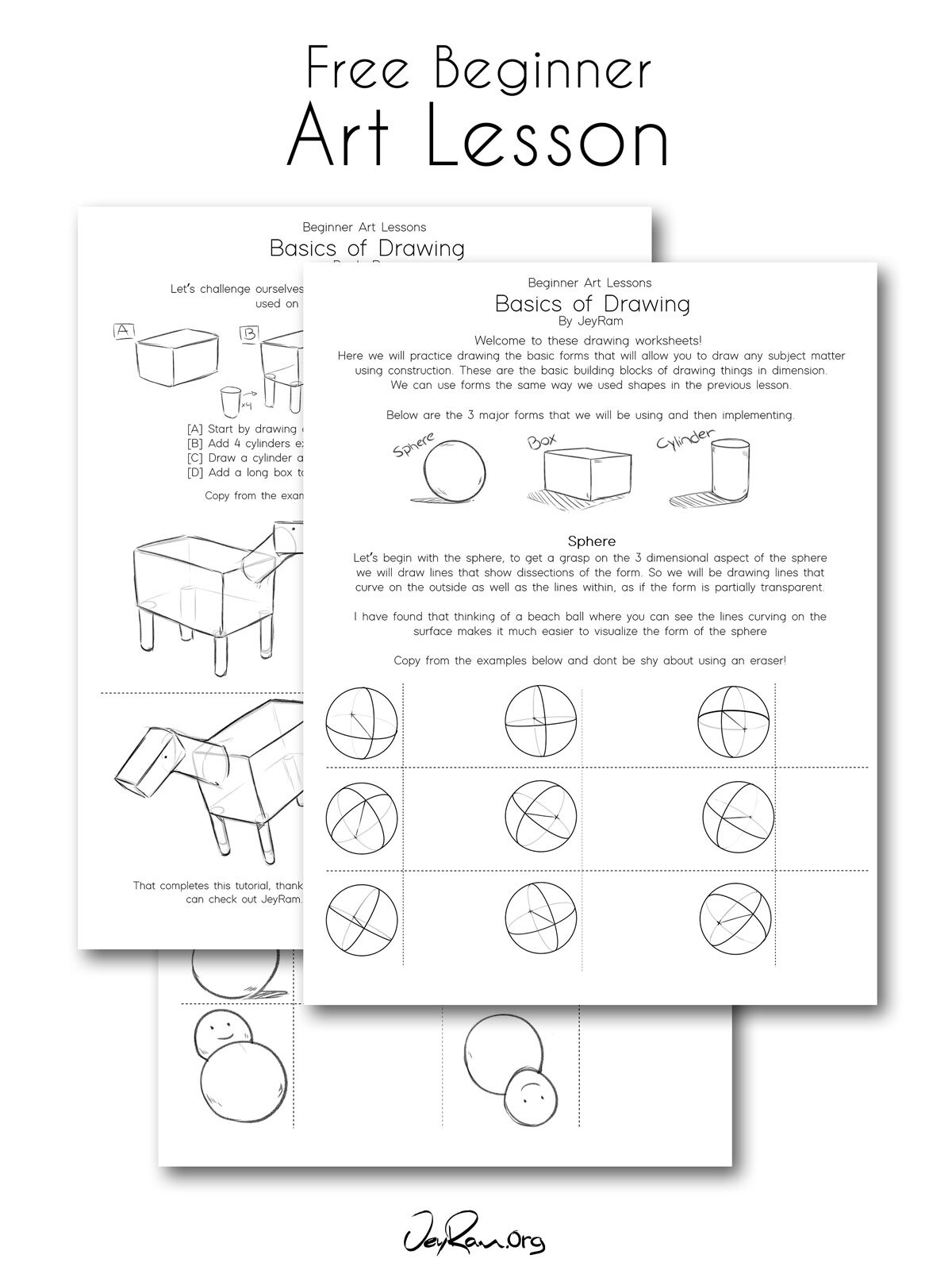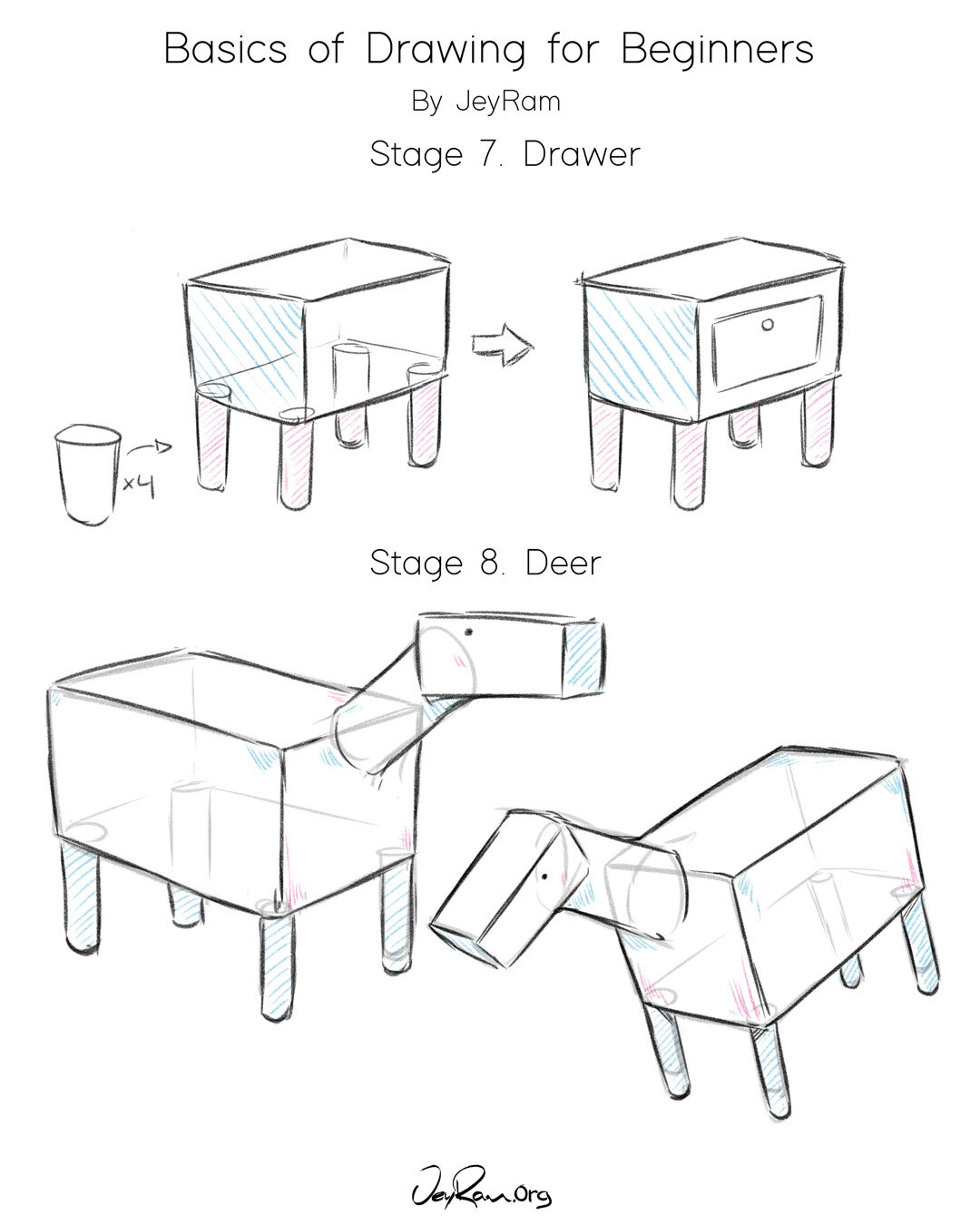Free Beginner Art Lesson: Forms
Free Beginner Art Lesson: Forms
This is the second stage in our beginner practice, now we will jump into drawing in 3 Dimensions. Learning to draw as a beginner can seem really intimidating but the more you practice these very basic lessons the easier your art journey will become.
Your ability to draw in pencil become easy once you practice the basic skills!
Beginner Art Lesson: Forms
In this second lesson we go over how to draw 3D forms. This is one of the most important things to learn as a beginner artist if you are interested in drawing the illusion of space in your work.
Make sure to complete lesson #1 first before doing this one if you are brand new to drawing. We will be going over each of the major forms, then practicing them and applying them in a way that makes the learning more tangible.
Stage 1. Spheres
First lets start off with the sphere, which is essentially a ball. I find it easier to imagine these as either balls of clay or a beach ball. On the worksheet we practice drawing the contour lines that wrap across the form. This is really important because it helps us visualize the object we are drawing.
Stage 2. Two Tier Snowman
Now we will apply our ability to draw spheres by combining two to draw cute snowmen. Give them smiley faces to make this extra fun.
Stage 3. Boxes
For this stage we will be drawing boxes, this is hugely important because boxes are very useful for understanding perspective. Being able to draw these and capturing the dimension of the form will make it much easier to draw anything in perspective.
Once you complete this portion I would highly recommend that you draw more boxes in your sketchbook until you feel comfortable drawing them.
Stage 4. Speakers
Let’s have fun with our new ability to draw boxes by drawing some speakers. This helps solidify our learning, feel free to draw different subject matter that is made up of simple boxes in your sketchbook. The more enjoyable you make your studies the quicker you will learn.
You might feel very challenged by these lessons but its important to remember that you only learn through challenge. Erase as much as you need to and take your time, there is no reward for rushing through these exercises.
Stage 5. Cylinders
The last major form we will be using is the cylinder. This one can be quite tricky to get used to because getting the curves right is difficult, but you will learn it with practice.
Stage 6. Coffee Cup
To apply our knowledge let’s draw some coffee cups that are made up of one thin and tall cylinder with a slightly thicker but short cylinder at the top. Draw a small opening on the lid.
Stage 7. Drawer
Now we can combine what we have learned by drawing some drawers by drawing a large box with 4 cylinders as legs. This can feel very challenging if you are new to drawing but just take it slowly and erase as much as needed.
Combining the forms this way will help us draw many different subject matter. This concept applies to pretty much everything within drawing, so if you learn this as a beginner you will have a much easier time with everything else.
This is the foundation of all drawing in dimension.
Stage 8. Deer
We can use the same first steps of drawing the drawer, but add a cylinder for the neck and a box for the head and we have a stylized deer. As you do this you can see how you can simplify very complex subject matter to make it much easier to draw in perspective.
You could use these simple forms as guidelines to then draw more specific lines.
Once you have completed this lesson do some practice in your sketchbook. This is a lot of information to take in as a beginner artist but its immensely useful to learn early on, which is why this is the second lesson.
Take your time with this and practice lots, the more you get comfortable with this the easier all of drawing becomes.





